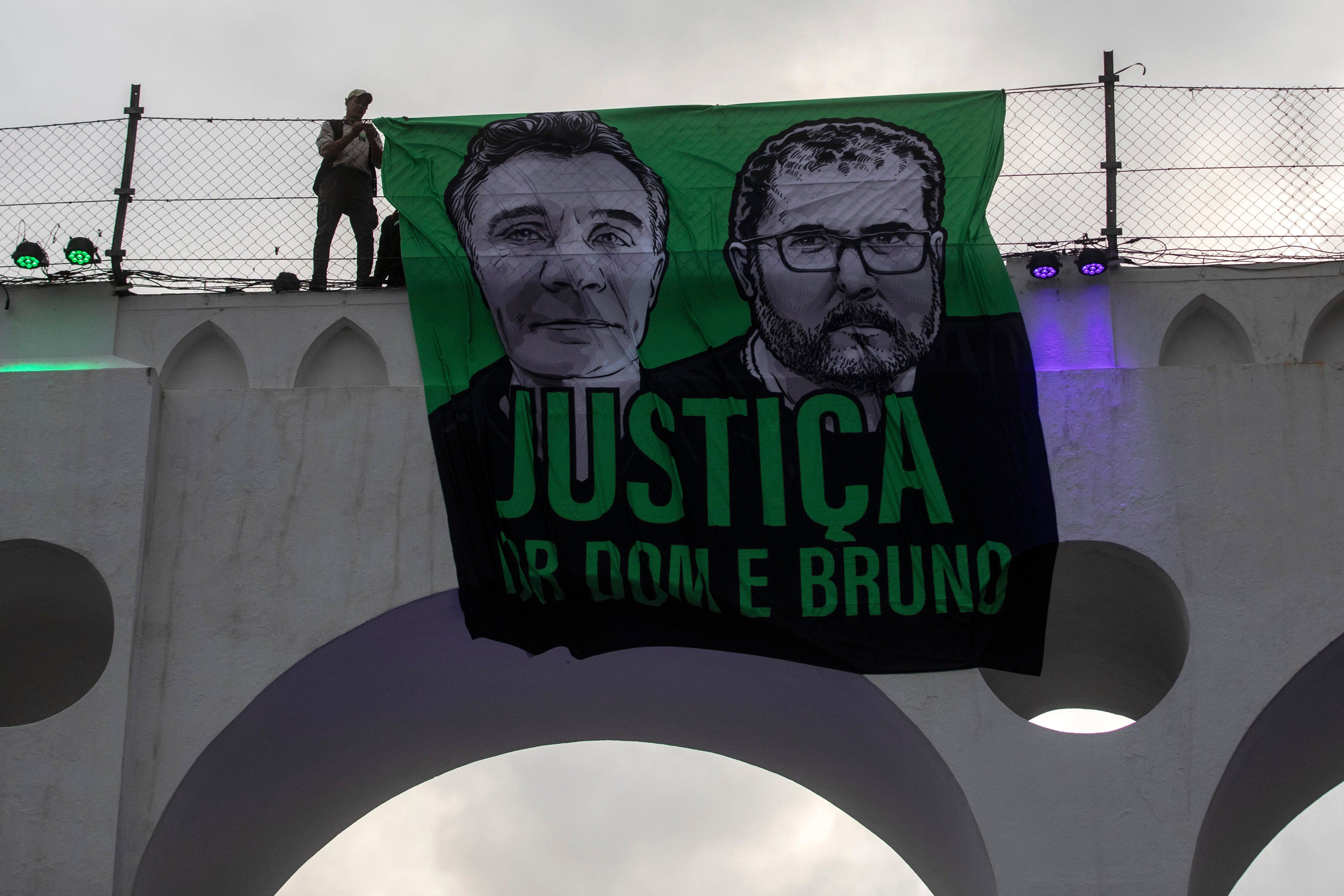Brazil court drops a suspect in Amazon slayings of a British journalist and an Indigenous advocate
A federal court in Brazil has dismissed charges against one of three men arrested in the killings of an Indigenous peoples expert and a British journalist in the Amazon, ruling there wasn’t sufficient evidence to try him

Your support helps us to tell the story
From reproductive rights to climate change to Big Tech, The Independent is on the ground when the story is developing. Whether it's investigating the financials of Elon Musk's pro-Trump PAC or producing our latest documentary, 'The A Word', which shines a light on the American women fighting for reproductive rights, we know how important it is to parse out the facts from the messaging.
At such a critical moment in US history, we need reporters on the ground. Your donation allows us to keep sending journalists to speak to both sides of the story.
The Independent is trusted by Americans across the entire political spectrum. And unlike many other quality news outlets, we choose not to lock Americans out of our reporting and analysis with paywalls. We believe quality journalism should be available to everyone, paid for by those who can afford it.
Your support makes all the difference.A federal court in Brazil dismissed charges Tuesday against one of three men arrested for the killings of Indigenous peoples expert Bruno Pereira and British journalist Dom Phillips in the Amazon, ruling there wasn’t enough evidence to try him.
Oseney da Costa de Oliveira, a poor fisherman who lived by the Itaquai River, was arrested on June 14, 2022, nine days after the slayings.
Also arrested were his brother, Amarildo da Costa de Oliveira, and Jefferson da Silva Lima, who confessed to the killings but claimed self-defense. The Federal Regional Court of the 1st Region upheld a lower court decision that they will now face a jury trial.
With the ruling, Oseney Oliveira, a father of four, will be released following 27 months in prison, most in a federal penitentiary thousands of miles from Atalaia do Norte, his hometown in Brazil’s Amazon, where the killings occurred.
A Colombian businessman, Rubens Villar Coelho, stands accused of masterminding the slayings and is also in custody. As the owner of a floating fish warehouse outpost, he financed illegal fishermen who ventured onto Indigenous land. He denies any involvement in the killings.
In a statement, Univaja, an association of Indigenous peoples of the Javari Valley where Pereira was working at the time of his killing, said it received the ruling with “indignation” and “concern” and urged federal prosecutors to appeal the decision.
Phillips and Pereira were traveling along the Itaquai River near the entrance of the Javari Valley Indigenous Territory, which borders Peru and Colombia, when they were attacked. Their bodies were dismembered, burned and buried. Their disappearance sparked intense international outcry and pressure for action.
Pereira, a well-known advocate for Indigenous rights, fought against illegal fishing in Javari area, while Phillips, an experienced journalist, was working on a book about Amazon preservation.
___
The Associated Press’ climate and environmental coverage receives financial support from multiple private foundations. AP is solely responsible for all content. Find AP’s standards for working with philanthropies, a list of supporters and funded coverage areas at AP.org.